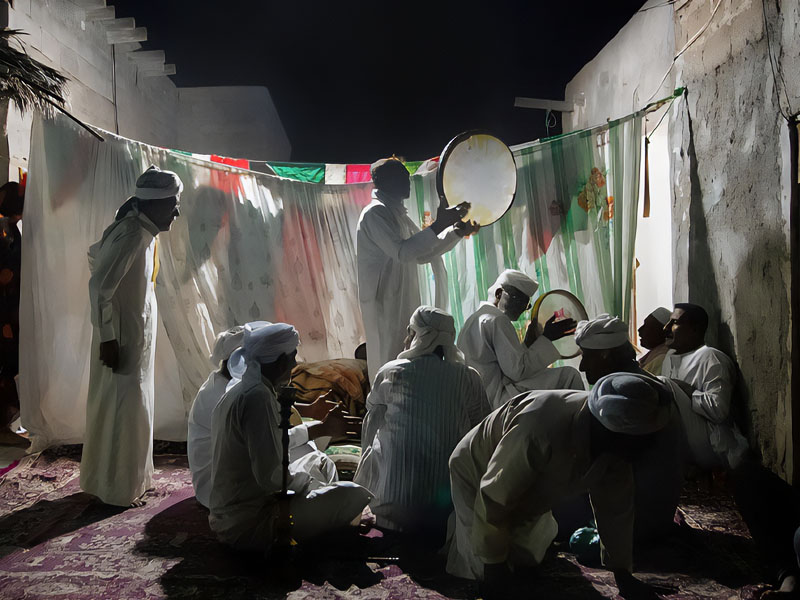Zar in Sudan: Folk Psychotherapy
Issue 43

By Umamah Mohammed Al Khair Ukasha
This study describes the role of practitioners of traditional medicine in Sudan, including herbalists, people who treat fractures (Al Basir), cupping specialists, and faith healers.
In mosques where Sufi sheikhs teach the Quran, there are clinics for the treatment of social problems and mental illnesses. The sheikhs of the Zar also play a significant role in the treatment of mental illnesses. This study will focus on Zar, which is used as a treatment for mental illnesses.
Illness is as old as human existence. Before modern medicine, traditional medicine was used to treat illnesses. Traditional medicine involves observing symptoms and administering the treatment in several stages. Written material about traditional medicine reflects values and concepts derived from a belief in spiritual and mental treatments, herbal medicine, and the natural elements. The treatment’s success is based on the patient’s faith in the medicine and their response to the healer.
Primitive man attributed illnesses to supernatural powers and mysterious forces to which only a limited number of people had access. Illnesses were treated by priests, elders, and men of religion whose families had passed down the secrets of healing; they kept this knowledge secret in order to protect their privileged roles in the community. Treatments include faith healing, amulets, talismans, songs, and music.
In Sudan, traditional medicine is one of the most widely used types of medicine in the world. It is a deep-rooted part of Sudanese culture, which dates back to civilisations – such as the Kushite, Kerma, Meroe, Maqarra, and Alwa – which flourished on the banks of the Nile centuries before the birth of Christ. In Sudan, as in other African countries, modern medicine arrived with colonisation between 1898 and 1956.
According to a map of health services, millions of people with physical and mental illnesses resort to traditional medicine. This is due to their strong belief in traditional healers who are religious, and their lack of access to modern medical services.
Sudan’s Zar is a therapeutic ritual based on spiritual beliefs that are centuries old. Throughout history, there has been a cultural overlap in this region, with interactions among Arab, African and European neighbours. We found that Zar, a type of psychodrama, is very helpful in the treatment of mental illnesses.


































































